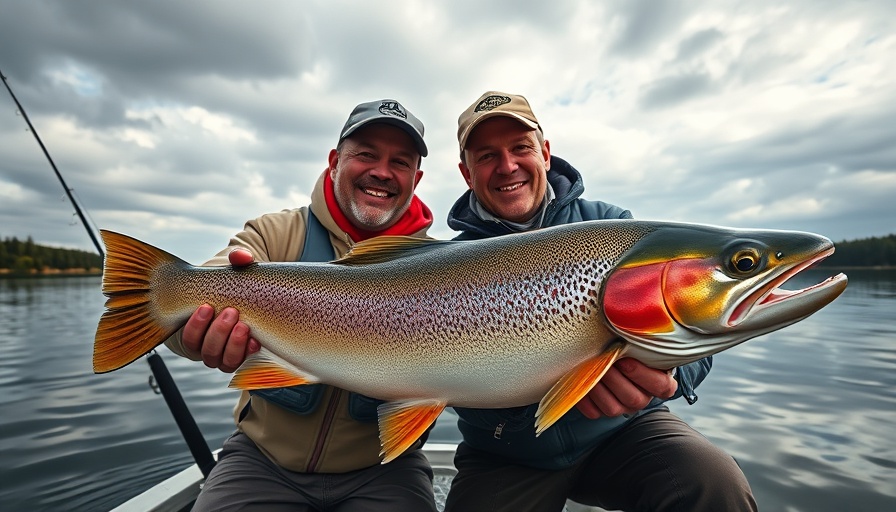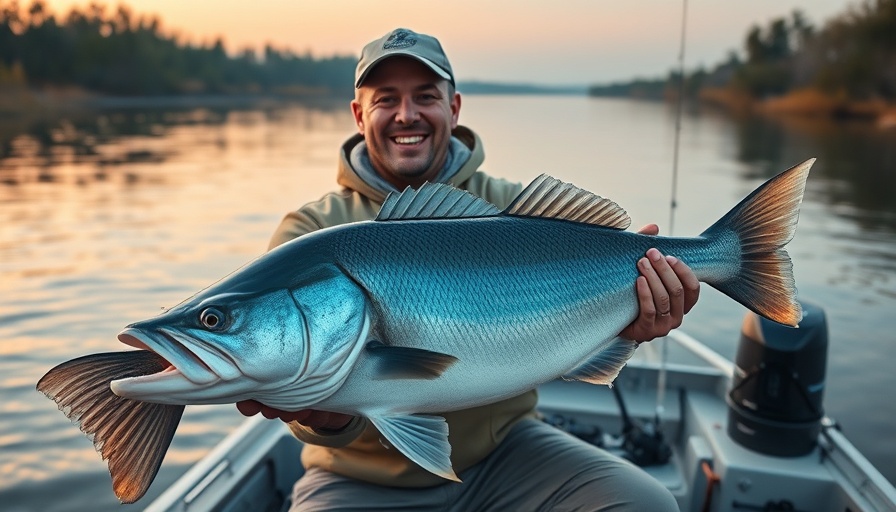
Uncovering the Secrets of Michigan's Ancient Lake Trout
When biologists tagged and released a lake trout in Michigan's pristine waters of Lake Superior, they were astonished to discover that this remarkable fish was a staggering 109 years old. This finding not only reshapes our understanding of the longevity of lake trout but also highlights the intricate ecosystems of the Great Lakes. For homeowners in the MidSouth, who often cherish outdoor activities and sustainable living, this news can inspire deeper realizations about the health of our planet and water bodies.
Why This Discovery Matters
The revelation of this exceptionally old lake trout, which occurred through a regular tagging program aimed at studying fish populations, opens a window into the historic health of the Great Lakes. These waters have faced numerous challenges, from pollution to climate change, which have affected fish populations severely. Knowing that a fish can reach such an age invites us to consider the steps we can take to protect our local ecosystems.
The Health Benefits of Connecting With Nature
Understanding the age and health of long-lived species like this lake trout can encourage us to reflect on our relationship with nature. Research demonstrates that spending time outdoors can significantly boost mental health and wellness, improving mood, reducing stress, and promoting overall fitness. Whether it's enjoying a quiet moment by a lake or exploring your neighborhood park, these connections can be vital for your well-being.
Practical Steps for Protecting Local Watersheds
As residents of the MidSouth, we have a unique responsibility to protect our waterways. Here are a few practical tips: 1) Be mindful of fertilizers and pesticides; opt for organic products or natural fertilizers to limit runoff. 2) Participate in local clean-up efforts; many communities host events aimed at maintaining parks and lakes. 3) Educate your family about the importance of keeping our waters clean, nurturing the next generation’s appreciation for nature.
The Future of Michigan’s Lake Trout and Ecosystem
What does this discovery mean for the future? Experts believe that with continuous monitoring and conservation efforts, populations can recover and thrive. By focusing on sustainable practices, we can influence not only the health of lake trout but also numerous other species that depend on these habitats.
Emotional Connection: Why Our Actions Matter
This insight into the life of a 109-year-old lake trout resonates on an emotional level, sparking curiosity and engagement. Local homeowners often enjoy fishing or simply admiring the beauty of nature. Realizing that our actions today can protect such majestic life forms can inspire a sense of urgency and responsibility toward preservation efforts.
Conclusion: Embrace the Beauty of Nature While Protecting It
As we continue to learn about the old lake trout and its habitat, it becomes crucial to embrace our role as stewards of the environment. By taking proactive steps—whether through sustainable practices at home, supporting conservation initiatives, or simply enjoying our natural surroundings—we can positively impact our ecosystem and our health. Let this ancient fish inspire you not just to appreciate nature, but to act on its behalf.
 Add Row
Add Row  Add
Add 



Write A Comment